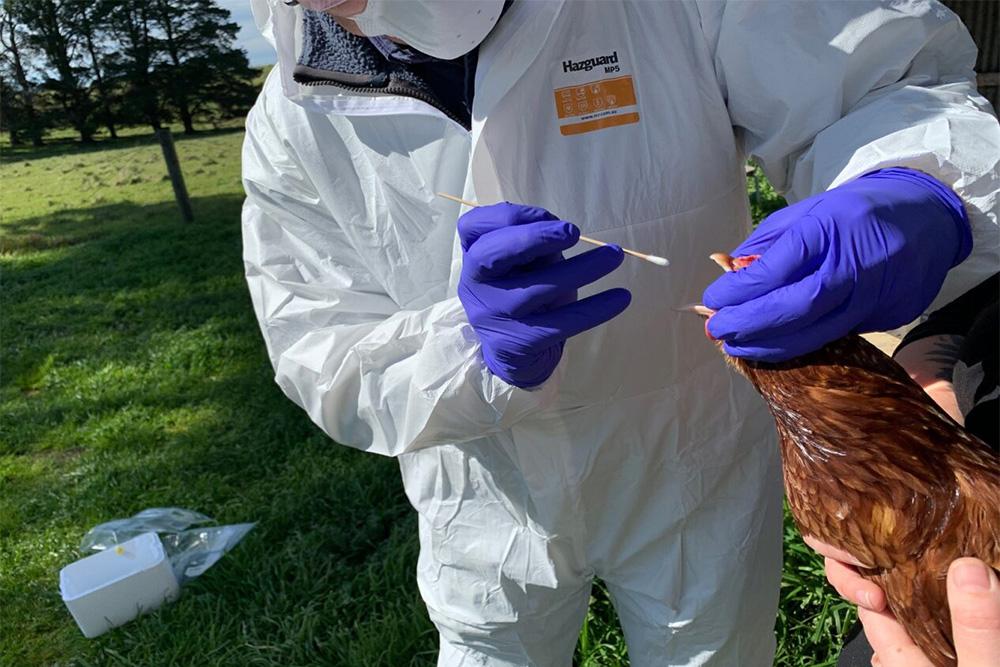The incidence of Foot-and-Mouth Disease (FMD) in Indonesia has stabilised with reported cases falling from over 12,000 per day in mid-2022 during the initial outbreak to around 25 per day currently.
The Department of Agriculture, Fisheries and Forestry will bring biosecurity measures for travellers arriving from Indonesia into line with other countries from 4 June 2024.
Deputy Secretary of Biosecurity, Operations and Compliance, Justine Saunders APM, said the department had continued to closely monitor the FMD situation since the initial outbreak in May 2022.
“FMD case numbers in Indonesia have stabilised and are now comparable to the 70 other countries where FMD is present,” Ms Saunders said.
“As a result of revised scientific risk assessments, the department will remove some of the biosecurity measures at the Australian border that have applied to travellers from Indonesia since the initial FMD outbreak in mid-2022.
“Travellers arriving from Indonesia will now be subject to the same biosecurity controls as people arriving from any other country where FMD is present.
“While some measures like sanitation foot mats will no longer be used for flights arriving from Indonesia, other heightened biosecurity protection measures will be kept for flights from all countries.
“Those measures include extra dogs trained to detect biosecurity risks, screening with 2D x-ray capability and trials with enhanced 3D x-rays, real-time risk assessment by Australian biosecurity officers at the border, targeted communication and increased signage.”
Ms Saunders said managing risk at the Australian border was just one element of the department’s broader work to enhance regional biosecurity.
“Australia continues to support our nearest neighbours and close trading partners as they respond to animal disease pressures,” Ms Saunders said.
“Australian Government support for Indonesia’s FMD response included providing 4 million vaccine doses and training for more than 100 Indonesian quarantine officers through the Biosecurity Training Centre at Charles Sturt University.
“That support has directly contributed to Indonesia’s strong response to FMD and has strengthened the integrity of our national biosecurity system.
“Australia remains free from FMD thanks to our robust biosecurity system, effective management in Indonesia and the continued vigilance of incoming travellers.”
Fast Facts:
- Sanitation foot mats deployed in international airports from July 2022 and cruise terminals from September 2022 will no longer be used for travellers arriving from Indonesia from 4 June 2024.
There are strict penalties for non-compliance with biosecurity requirements, including infringement notices up to $6260 and cancelling people’s visa.
From 2022, detector dogs were trained in new scents for additional FMD risk products and these products will continue to be targeted.
- Heightened measures that will continue with a broadened focus to address global biosecurity risks include:
- Real time risk assessments undertaken by biosecurity officers at the border including identifying post-arrival indicators of risk and targeted questioning of travellers.
- Application of biosecurity profiles to identify high risk travellers, mail, and goods.
- Referral of all high-risk passengers and mail for biosecurity screening.
- Continued screening with 2D x-ray capability and trials with the enhanced 3D x-rays.
- Expanded deployment of detector dogs to all major international airports and mail facilities.
- Targeted communication and engagement activities to increase awareness of biosecurity risks and import requirements.
- The Australian Government committed over $10 million to support Indonesia’s response to this outbreak.



